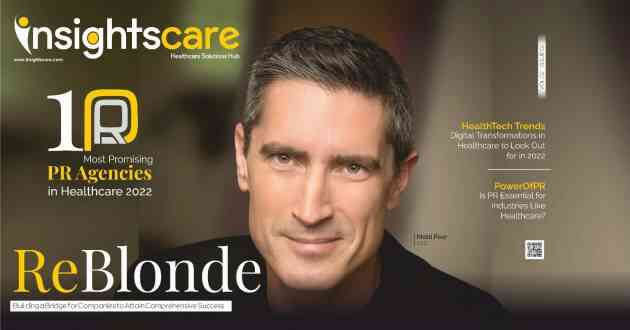The Pervasive Impact Of Social Media On The Healthcare Industry

Social media is here to stay, and its influence on the healthcare industry is undeniable.
Social media, the potent tool of the 21st century, has transformed the way we communicate and interact, permeating almost every industry. One sector that has seen significant change is healthcare. From patient education to professional networking, the role of social media in healthcare is continually expanding, fostering a patient-centric approach to care and an efficient means of information dissemination. This article explores the profound impacts of social media on the healthcare industry.
Undeniably, the most significant impact of social media in healthcare is the democratization of health information. Patients are no longer passive recipients of care; they are active participants in their health journey. Platforms such as Facebook, Twitter, and dedicated health forums provide an avenue for patients to seek information, share experiences, and participate in health discussions. This peer-to-peer education has been a game-changer in empowering patients, promoting health literacy, and ultimately, aiding in informed decision-making.
In a similar vein, social media has boosted patient engagement. Through interactive posts, live chats, and webinars, healthcare providers can connect with patients outside the confines of a clinic. Providers can share updates, address common concerns, or provide health tips, fostering a dialogue that enhances patient-provider relationships. In an era where patient experience is vital, social media has proven to be a valuable tool in improving satisfaction and engagement.
Moreover, social media has been instrumental in public health communication. During public health crises, such as the COVID-19 pandemic, social media platforms served as critical channels for real-time information dissemination. Health organizations leveraged these platforms to share guidelines, debunk myths, and update on the progression of the disease and vaccination rollout. While it does present challenges such as the spread of misinformation, with appropriate checks and measures, social media can be a powerful tool for public health advocacy.
Furthermore, social media has made its mark on professional networking and collaboration in healthcare. Platforms like LinkedIn and Twitter, and specialty-specific networks like Doximity, allow healthcare professionals to connect, discuss, and collaborate beyond geographic boundaries. It provides an avenue for knowledge sharing, peer support, and global collaboration, enhancing the quality of healthcare practice.
For healthcare institutions, social media is a strategic tool for branding and marketing. A strong social media presence can help healthcare institutions build their reputation, attract potential patients, and recruit talented professionals. It’s also a platform to showcase their success stories, innovative procedures, or cutting-edge research, helping them stand out in a competitive landscape.
Additionally, social media data, if utilized appropriately, can yield valuable insights into patient behaviors, sentiment towards healthcare policies, and disease trends. These insights can inform patient care strategies, public health policies, and even predictive models for disease outbreaks, making social media a potential treasure trove of health data.
Despite these benefits, the integration of social media into healthcare is not without challenges. Patient privacy and data security are paramount concerns. It is essential that healthcare providers maintain the highest standard of confidentiality and adhere to regulatory guidelines while interacting online. Misinformation is another concern; thus, ensuring credibility of information is crucial. Lastly, digital literacy, both among patients and providers, is necessary to effectively use these platforms.
However, these challenges do not diminish the transformative potential of social media in healthcare. The key lies in developing comprehensive social media policies, educating users, and employing stringent checks to ensure credibility.
The integration of social media into healthcare signifies a move towards a more interactive, patient-centric model of care. As we continue to navigate this digital landscape, the influence of social media in healthcare will only magnify. By harnessing its potential responsibly, we can create a healthcare system that is more accessible, transparent, and connected.
As we step further into the digital age, it is imperative to stay updated and adaptable. The pervasive impact of social media on the healthcare industry provides both an opportunity and a challenge. Its power to connect, inform, and empower is remarkable. However, we must tread this path responsibly, prioritizing patient safety, privacy, and the credibility of information above all.
In conclusion, social media is here to stay, and its influence on the healthcare industry is undeniable. It’s transforming how healthcare providers communicate with patients, how health information is disseminated and accessed, and how healthcare professionals connect and collaborate. As we continue to unlock its potential, we must also remember to balance innovation with responsibility. Because, in the end, the goal is clear – to enhance patient care and improve health outcomes.
Read More:https://insightscare.com/the-pervasive-impact-of-social-media-on-the-healthcare-industry/



